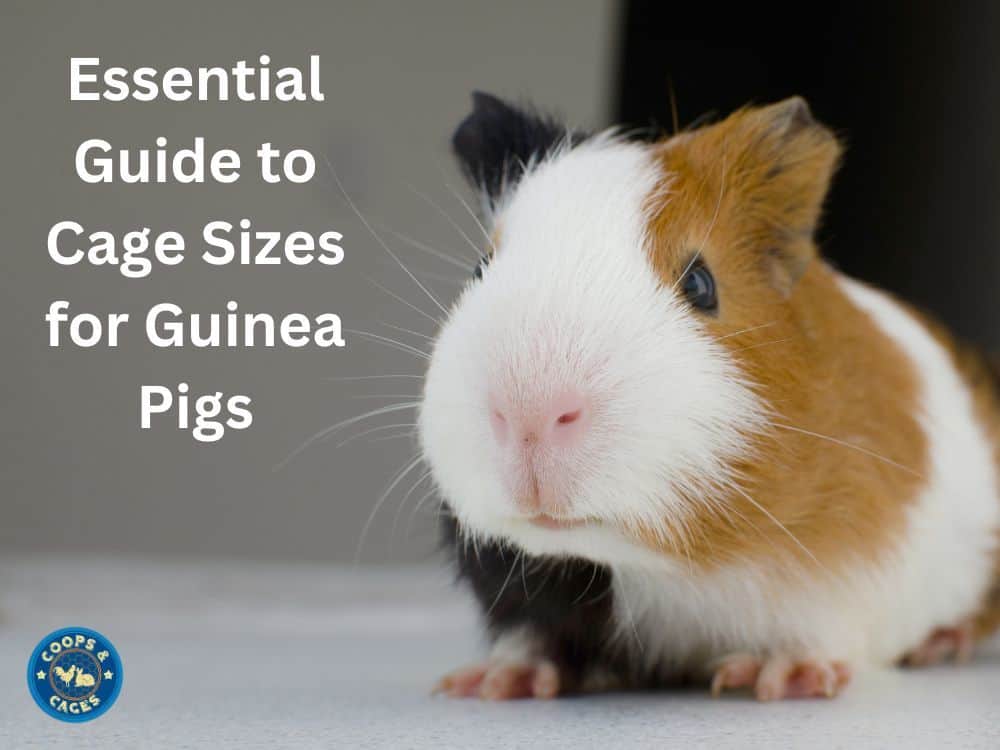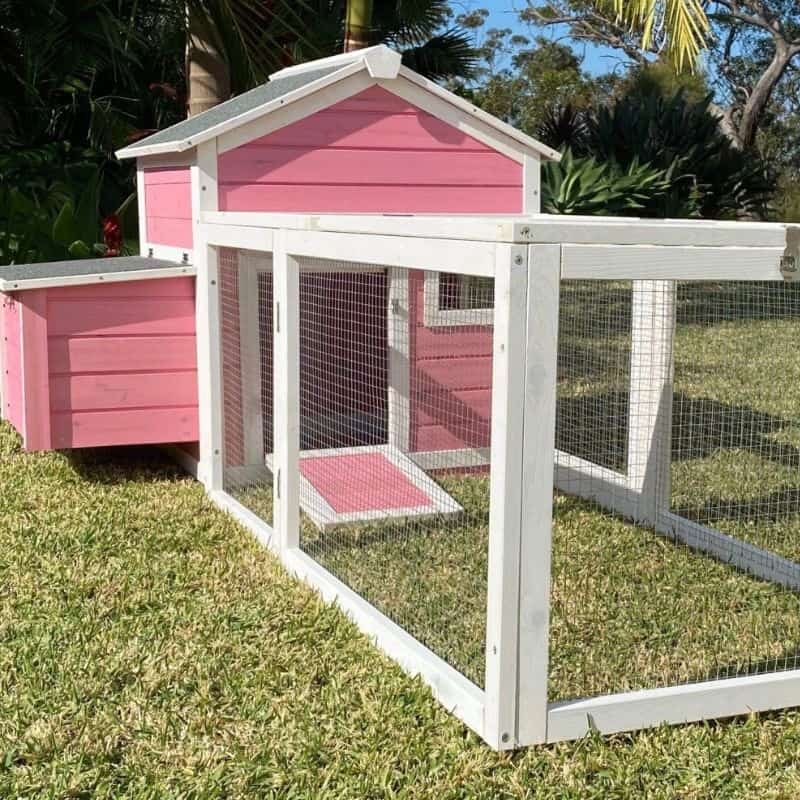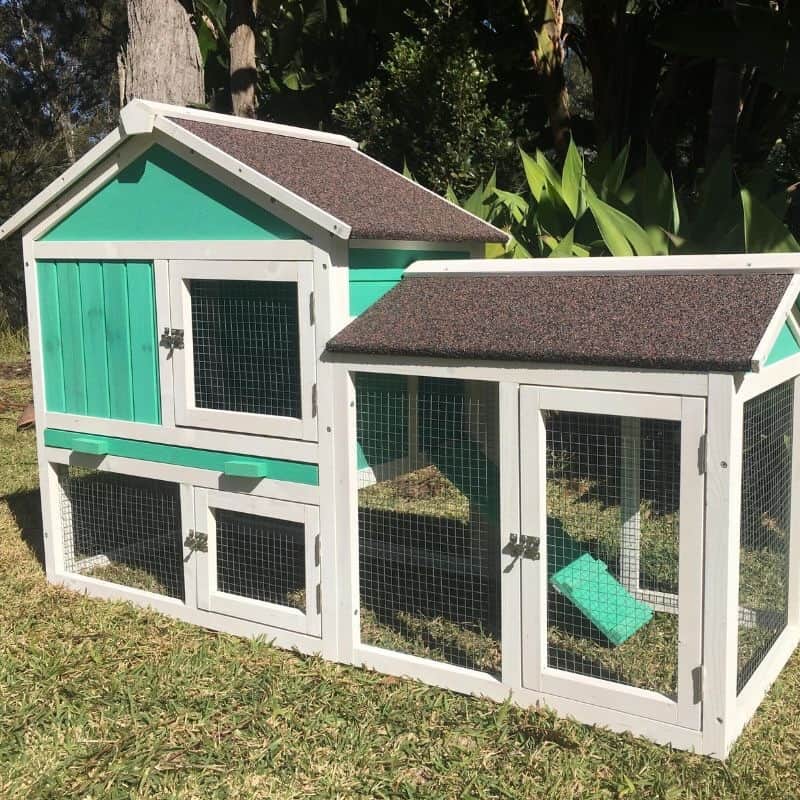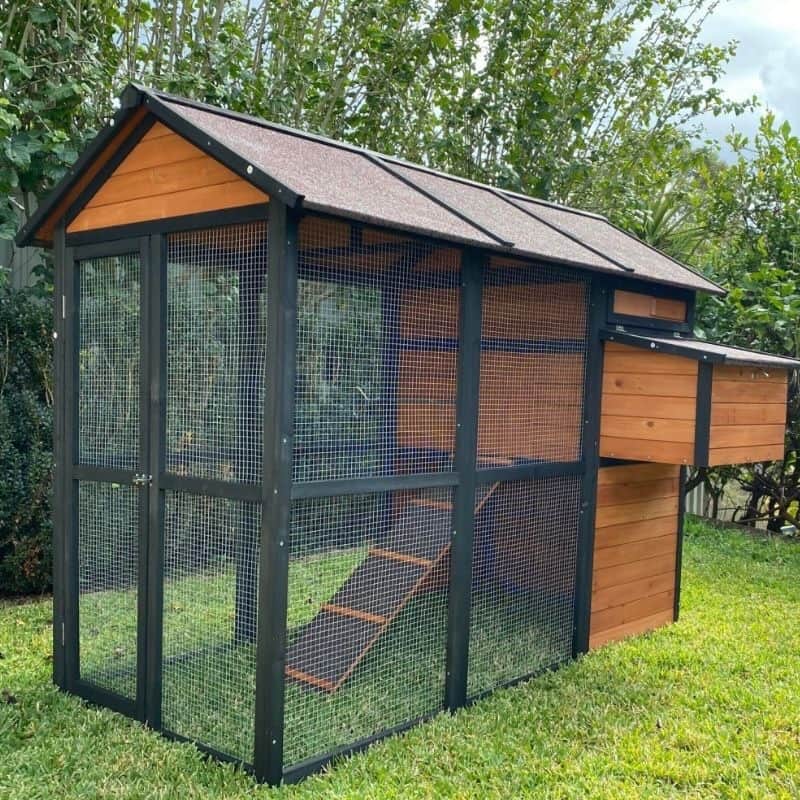Guinea Pigs, How To Do Things
Essential Guide to Cage Sizes for Guinea Pigs
Understanding the importance of cage sizes for guinea pigs is crucial for their health and happiness. The right-sized cage isn’t just a nice-to-have; it’s vital. In this handy guide, we’ll look at why your guinea pigs need room to move and how that plays into their well-being.
You’ll get the lowdown on minimum space requirements, especially when you’ve got more than one cavy friend. We’ll suss out what hutch features help cavies stay healthy – from safe materials to smart design features.
Plus, we will recommend the best cage sizes for guinea pigs from Coops and Cages.
Understanding the Importance of Cage Sizes for Guinea Pigs
Guinea pigs are social, active creatures and their environment plays a crucial role in their overall well-being. Proper cage size is not just a luxury, it’s essential for our furry friends to live happy, healthy lives.
The right enclosure allows guinea pigs to engage in natural behaviours such as running, exploring and playing. These activities help prevent obesity and boredom-related issues like bar-chewing or overgrooming.
Plus, having enough space is critical when you have more than one guinea pig because they need room to spread out if they need a break from one another.
Size Recommendations
Animal welfare organisations, such as the Humane Society, recommend that a single guinea pig has at least 0.7 square metres (7.5 square feet) of cage space—but this is just the minimum.
The more space you can provide your cavy, the happier they’ll be. If you’ve got two guinea pigs—which is recommended since they’re sociable animals—piggy parents should aim for an enclosure that provides at least 1 square metre (10.8 square ft).
This gives guinea pigs plenty of room to move around freely without getting in each other’s way. Allow extra room for essentials such as food and water bowls.
Male guinea pigs and pregnant sows may need more than the minimum floor space advised, as they may become territorial.
Features of an Ideal Guinea Pig Habitat
The ideal cavy cage isn’t just about dimensions but also involves selecting materials that keep your pets safe and comfortable.
Safe and Sturdy Materials
The materials you choose are the foundation of your pet’s well-being. Start with non-toxic woods or metals that won’t harm your guinea pig if they nibble on them—which they will. The cage should be robust to withstand wear while keeping predators out.
Airflow Without Drafts
Your cage needs fresh air but also to avoid excessive drafts which can lead to respiratory issues. Look for a design that promotes airflow yet has an area where the guinea pigs can retreat from breezes.
Elevated Sleeping Quarters
Multi-level cages are a great way to add floor space to your piggy palace without taking up extra room in your house. Cavies have pretty poor depth perception so steep ramps should include protective sides to avoid falls
Engaging Accessories
Bored guinea pigs can become stressed and more susceptible to developing medical conditions. Curb boredom by adding fun features such as hideouts, chew blocks, tunnels, cardboard boxes or other toys available at pet shops.
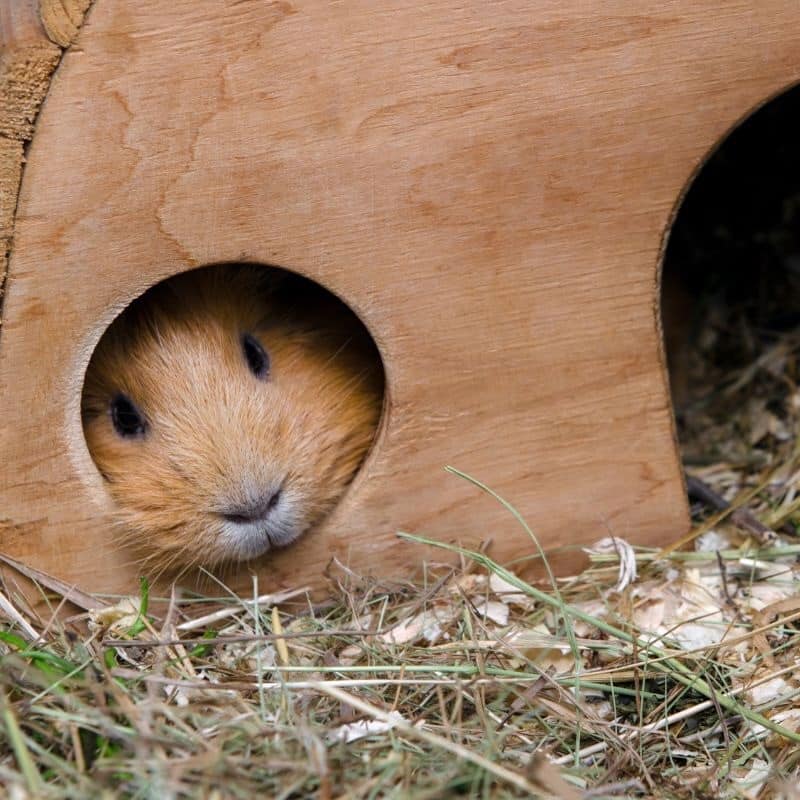
Consequences of Inadequate Cage Size
Healthy guinea pigs need room to roam. When they’re confined in a space that’s too small, it can lead to serious health and behavioural issues.
Without roomier enclosures, guinea pigs may become less active which is bad news for their well-being.
Physical Health
Waste accumulates quickly in small cages. If you only meet minimum cage size requirements, you will need to clean the enclosure more often to reduce risks of diseases caused by poor hygiene, such as bumblefoot.
Without adequate room for exercise, small pets are at risk of obesity, heart disease and decreased lifespan.
Mental Wellbeing
A cramped enclosure often triggers stress-related behaviours such as chewing bars or fighting because guinea pigs feel threatened due to the lack of personal space.
A tiny environment restricts mental stimulation causing boredom which might seem benign initially yet over time could manifest into depression-like symptoms and affect overall quality of life.
Social Dynamics
Guinea pig cage size can cause behavioural patterns to shift dramatically. In small spaces, normal scuffles between cage mates may become more serious without a way out during conflicts.
Top Guinea Pig Cages and Hutches
Finding the right home for your guinea pig is about more than just space; it’s about providing a safe haven where they can thrive. The ideal cage combines ample room with sturdy construction, proper ventilation, and easy access for cleaning.
Cottage
The Cottage is a cute outdoor hutch, available in 4 bright colours. It features an enclosed house and a long outdoor run for exercise. It has approximately 1.4 square metres of floor space, making it more than the recommended cage size for 2 adult guinea pigs.
Florida
Florida is a 2 level guinea pig hutch with a stylish teal and white design. It has a pull-out tray for easy cleaning and a fully covered waterproof roof.
When combining both levels, this hutch offers approximately 1 square metre of floor space. This means it’s the perfect home for 2 happy guinea pigs.
Connie
Connie is one of the roomiest cages with a huge downstairs run area, an enclosed upstairs sleeping area and a fully covered roof for weather protection.
When combining the ground and raised level, this hutch offers approximately 2.1 square metres of floor space – making it suitable for up to 5 guinea pigs.
See Coops and Cages‘ full range of guinea pig hutches here.
FAQs in Relation to Cage Sizes for Guinea Pigs
Do Guinea Pigs Like 2 Level Cages?
Guinea pigs enjoy multi-level hutches; they add variety and extra exercise opportunities.
What Is The Minimum Size Cage For 2 Guinea Pigs In CM?
The smallest you should go is about 120cm by 60cm. This gives your two cavies room to exercise.
What Size Cage Does The RSPCA Require For A Guinea Pig?
The RSPCA says each guinea pig needs at least 0.7 square metres, but more’s always better.
Jordan’s Wrap
Finding the right cage sizes for guinea pigs is a big deal! A spacious enclosure allows these social and active creatures to indulge in natural behaviours, preventing health issues and promoting a fulfilling life.
Following size guides from animal welfare organisations ensures sufficient space for guinea pigs, encouraging overall well-being. The ideal guinea pig habitat extends beyond dimensions, emphasising safe materials, proper airflow, elevated sleeping quarters, and engaging accessories.
Inadequately sized guinea pig cages can lead to severe consequences affecting physical health, mental well-being, and social dynamics.
Here at Coops and Cages, we not only offer a range of spacious guinea pig hutches and runs, but we also have an online Guinea Pig Learning Centre that answers all the questions you have about cavy care plus plenty of guinea pig blogs too.
Still have more questions? Contact our friendly Customer Service Team for help here.



